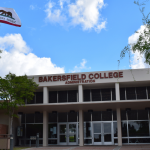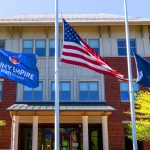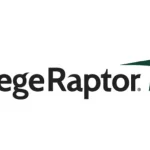South Piedmont Community College is a small community college (enrollment: 3,085 curriculum students) that serves Union and Anson Counties in North Carolina. Like so many colleges and universities, SPCC struggled in recent years to provide adequate and engaging information to students and answer their questions in a timely manner. Dr. Malinda Daniel, Executive Director of Learning Innovations, sought a technology that would scale student service and support within tight budgetary constraints. Earlier this year, SPCC implemented Ocelot’s AI Chatbot platform to fill this need.
Ocelot recently interviewed Dr. Daniel to document SPCC’s story.
The Motivation
Ocelot: What was the tipping point that compelled SPCC to pursue AI chatbot technology? Were you trying to fix something that was broken, or were you looking out on the horizon and seeing the need?
Dr. Daniel: We had to scale the way we approach service and support – not enough resources and time on both fronts, with students and staff. We couldn’t afford to hire a bunch of people – but we could implement affordable technology like Ocelot’s AI Chatbot to handle frontline Tier 1 questions. It’s available 24/7. It does not take vacation. It is automated bi-lingual help. We named our Chabot “Navi” and started with as many departments as we could.
Evaluation and Roll-Out
Ocelot: As you explored this technology, did you run a formal evaluation? If so, what was it about Ocelot that stood out?
Dr. Daniel: There are tons of Chatbots out there! When we started digging in, we narrowed down our search. We started looking for a tool that was education-focused and bilingual. We didn’t want something built for industry – we wanted something education focused that would truly help us with the expertise we needed! We have built strong relationships with Ocelot. We have gotten to know their people (Max and Lorinda in particular). Ocelot has done a great job holding our hands, and helping us grow. Their onboarding process was a huge differentiator for us.
Ocelot: What departments did you start with and where have you expanded to truly leverage across the campus. Tell us about that journey and why you decided to grow?
Dr. Daniel: At the start, we envisioned just Financial Aid. That’s who brought Ocelot to the table for consideration. But it quickly expanded to Admissions/Testing, Advising, and Registrar – these departments all wanted and needed additional help. The pass-off from Sales to Implementation was fast. Within a week, we had our first launch meeting and five days later, at 3 pm, we were live! We wholeheartedly jumped in with both feet to get this up and running, and it exploded from there! Ocelot was the first of many technological advancements we made. We are still expanding IT as well as Human Resources are up next.
We are aggregating and corralling “College Knowledge” – all the things you know as an administrator but are not always strung together or known by the students. And we are now providing information in a simple, consistent, and modern manner. The starting place that Ocelot provided – their knowledge base – was huge. We then built upon that. It’s regularly updated. Navi is a part of our team now and we find that faculty and staff are also asking questions to make sure they provide the most current information to our students.
Ocelot: How much of a lift has it been for your staff to launch and maintain Navi?
Dr. Daniel: The entire process was easier than we expected. We have worked with products in the past that were very laborious. We quickly learned that scalability is very important. At SPCC, every respective area owns their content. It’s their responsibility to keep information up to date. The areas know that 15 minutes a week, checking information will save them hours the next week of asking these entry level questions.
Spreading the Word
Ocelot: SPCC has done a wonderful job with promoting the availability of your AI-powered student engagement platform (and chatbot) – what have you found to be most effective in spreading the word?
Dr. Daniel: We realized what we wanted to do is really sell and celebrate what we have accomplished. We conducted a 10 day campaign in partnership with an advertising agency to share all the things that happened while students were gone during the pandemic (like new majors, building, technology, etc.). Navi was a big part of this message and has been integrated into our college app.
Data, Data, Data
Ocelot: What metrics/analytics (both inside the Ocelot platform and outside metrics too) do you use to know that the platform is delivering value to SPCC? Tell us about how you’re incorporating these into your overall student engagement approach.
Dr. Daniel: Analytics. That was one of the biggest reasons/selling points on why we decided to partner with Ocelot. Historically, lots of people had “feelings” about data/numbers…but didn’t actually have quantifiable information. Now with Navi, we know. We have the data we need to justify things like new hires or when spikes in service occur (how to best utilize staffing on a particular day/time). Our people love Navi. Students. Staff. Everyone. There is a big Navi movement on campus. Faculty uses it just as much as students. Navi provides continuity, consistency, and sustainability. In many ways, it’s a “cheat sheet” for the college. To date, we’ve had 16,000 interactions. That’s a ton of phone calls we didn’t have to take. Timeliness of response is also huge, as Navi provides immediate answers/assurances to those who need help.
Looking Ahead
Ocelot: What does the future hold for SPCC in terms of expanding your use of AI to help continue to improve student engagement (both in general and with Ocelot’s platform)?
Dr. Daniel: We are excited to keep growing. We want to look for opportunities to have fun. Navi recently taught students where to get coffee via scavenger hunt. I don’t know exactly where it will go, but we want to be the school that uses every single piece of technology that Ocelot offers. These tools are really a gateway to the college that speaks in a way that students can understand.















